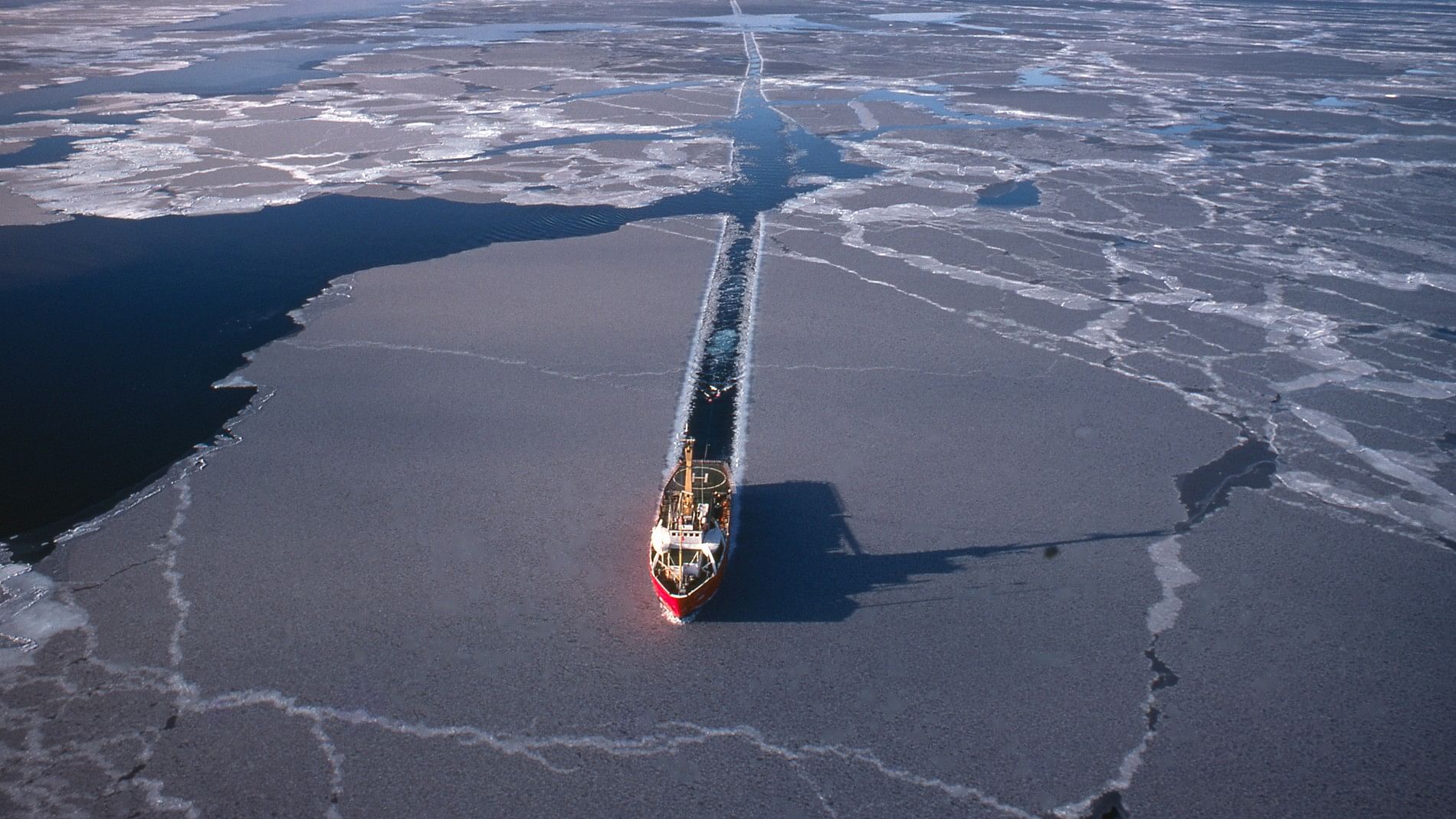
Representative image of an expedition vessel at the Arctic
Credit: iStock Photo
New Delhi: India is set to embark on its maiden winter expedition to the Arctic, making it the first Asian nation to stay at the northernmost polar region throughout the year – a move that may strengthen India’s voice at the Arctic Council.
In the first phase of the expedition that starts on Tuesday, four scientists will travel to the Indian station Himadri in the Ny-Alesund town, the world's northernmost settlement located at 78.55 degrees north latitude at Svalbard in Norway. A researcher from Raman Research Institute, Bengaluru is a part of the first team.
“Earlier our Arctic expeditions happened in the summer, mainly between June and October. Now we will work there continuously. Once the first group returns by January end, another group will be sent,” M Ravichandran, Secretary, Ministry of Earth Sciences that oversees the polar programmes, told DH.
The Indian research station, Himadri that can accommodate ten persons, has been operational in the Arctic since 2008.
New Delhi’s decision to start wintering at the Arctic comes at a time when the country is celebrating the 40th anniversary of the Antarctica programme, which gave India a foothold and three permanent research stations (two are functional) at the southernmost continent.
Besides the RRI scientist, the first batch of the Arctic winter team comprises researchers from the National Centre for Polar and Ocean Research, Vasco; Indian Institute of Technology Mandi and Indian Institute of Tropical Meteorology, Pune.
Ravichandran said the scientific experiments would include studies on micro-organism, link between Indian monsoon and Arctic weather, and space weather related studies.
In a statement, RRI said its scientist Girish BS, from the electronics engineering group has been designated as the team leader for the first batch. Girish will carry out a survey of the radio frequency environment at Svalbard.
Such a characterisation has never been done before at the site and can potentially open avenues for deploying low frequency radio telescopes in the region. The data collected by Girish will also provide key inputs to RRI endeavours to study the “cosmic dawn.”
“Artic is an area of scientific, climatic, and strategic importance. Our scientists will have to play a vital role in addressing areas that affect life and survival on this planet,” Union Minister, Kiren Rijiju said, flagging off the expedition.
Way back in 2013 India and China received “observer” status in the Arctic Council, which is an inter-governmental body comprising nations with a physical presence in the Arctic region. The current members are Canada, USA, Denmark, Finland, Sweden, Norway, Iceland and Russia.
